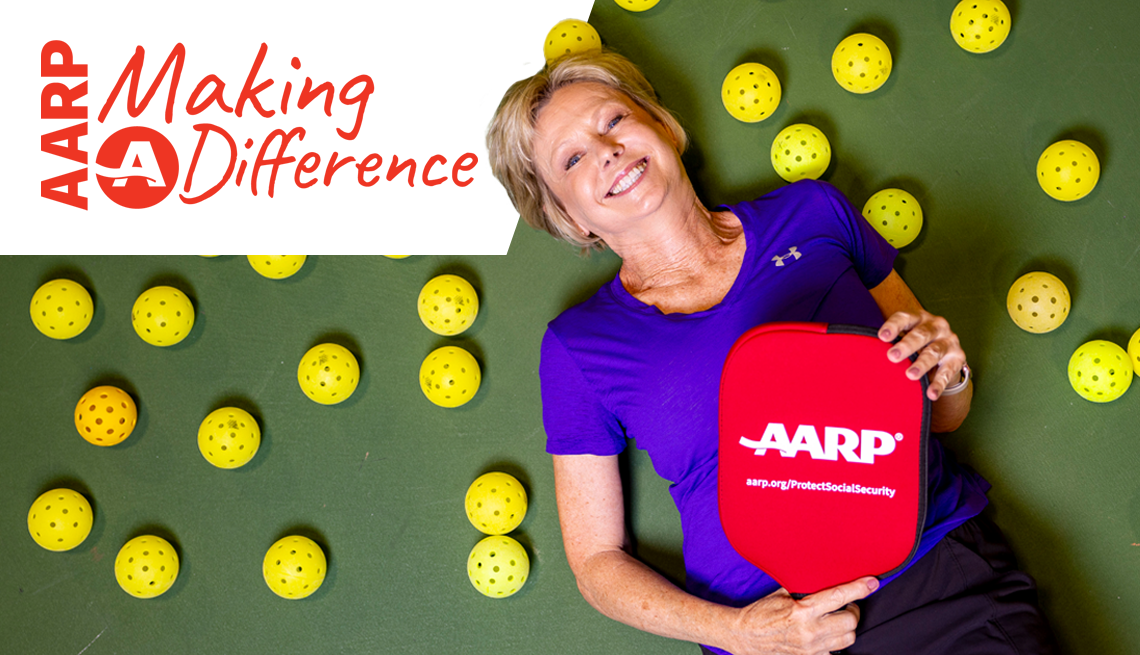AARP Hearing Center


Ann Tillery is not taking her health for granted.
The 65-year-old resident of Lincoln, Nebraska, experienced a sudden stroke in 2021 and spent months regaining strength and endurance. “Once you lose your independence, you learn how important it is to maintain a healthy lifestyle,” she says. “I’m always looking for ways to include new activities and movement in my routine.”
One of the activities she’s added to her list — with help from AARP — is pickleball.
Pickleball, a paddle sport that blends aspects of tennis, Ping-Pong and badminton, has exploded in popularity in recent years. Its mild intensity, relatively low impact and social nature explain why more than a third of pickleball players are age 45 or older, according to a 2025 report from the Sports & Fitness Industry Association.
AARP has been on the ball with this trend since 2023, when we started sponsoring the Association of Pickleball Players tour. AARP also runs free pickleball clinics across the country, where players at all levels can learn the rules, hone their skills and compete in short matches. There are plenty of tips to improve your game on AARP’s online pickleball resource hub.
“Pickleball has always felt uniquely aligned to our mission,” says Gregg Molander, senior director of brand experience at AARP. “We talk about the importance of active aging, brain health and staying socially connected. Pickleball promotes all three.”
From pickleball beginner to overnight convert
Tillery hit the courts a few times with friends after she recovered from her stroke, “but I had no idea what I was doing,” she says. The pickleball set one of her daughters gave her for Christmas sat untouched until she signed up for the Lincoln-based clinic advertised on AARP Nebraska’s Facebook page. Tillery pushed herself to attend, even though she was tempted to stay home after a long day of work.
Join Our Fight to Improve Aging in America
Here’s what you can do to help:
- Sign up to become an AARP activist for health care, financial security and other issues.
- Find out more about how we’re fighting for you every day in Congress and across the country.
- AARP is your fierce defender on the issues that matter to people 50-plus. Become a member or renew your membership today.
The session made everything click into place.
“I was blown away by how welcoming and well-organized it was from the moment I arrived,” she says.
The instructors grouped players by skill level and split the three-hour event into lessons, practice drills and abbreviated matches. Chris Clark, founder of Toss & Spin, the agency that runs AARP’s pickleball clinics, finds that the short learning curve is one reason pickleball holds so much appeal.
“If you start tennis at 50 or older, it will take years to feel good about playing,” he says. “With pickleball you have people who within 30 or 45 minutes are ready to compete.”






































































More From AARP
Older Alaskans Find Community in Bocce
AARP grant helps Special Olympics bocce players stay active and engaged
Find Community at The Girlfriend Social Club
AARP's new Facebook group helps women 40-plus connect and share
AARP Teams Up to Stop and Spot Scams
With Amazon, Google and Walmart, we're helping law enforcement curb fraud